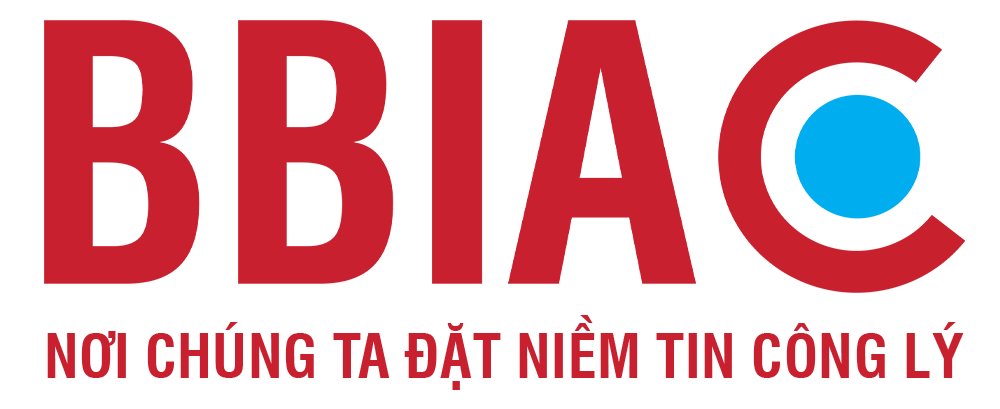Commercial arbitration and Vietnamese law

1. Vietnamese law on commercial arbitration
Vietnam’s Commercial Arbitration Law, stipulated in the Commercial Arbitration Law No. 54/2010/QH12, effective from January 1, 2011, regulates issues related to commercial arbitration. This is an important legal framework that helps resolve disputes in the commercial sector effectively and transparently.
Scope of regulation and applicable subjects
The Commercial Arbitration Law regulates the organization and operation of commercial arbitration, the rights and obligations of the parties involved, as well as the dispute resolution process. This law applies to disputes arising from commercial activities, disputes in which at least one party engages in commercial activities, and other disputes in which the parties agree to be resolved by arbitration.
Principles of dispute resolution by arbitration
The process of resolving disputes by arbitration is based on basic principles. The parties must voluntarily agree to submit the dispute to arbitration. In this process, the parties have equal rights and obligations, and the arbitrator must ensure neutrality and objectivity. Information related to the dispute is confidential, unless otherwise agreed or otherwise required by law.
Arbitration Agreement
An arbitration agreement is an agreement between the parties to resolve disputes by arbitration. This agreement can be made before a dispute arises or after a dispute has occurred and must be made in writing.
Arbitrator
Arbitrators must meet the standards of civil conduct capacity, professional qualifications and practical experience. Arbitrators have the right to receive compensation and must comply with the principles of neutrality and confidentiality and must not take advantage of their position for personal gain.
Arbitration Council
The arbitral tribunal, established to resolve the dispute, may consist of one or more arbitrators. The number of arbitrators is agreed upon by the parties. If no agreement is reached, each party appoints an arbitrator and the arbitrators select a third arbitrator to act as Chairman of the Panel.
Dispute resolution process
The dispute resolution process includes initiating arbitration by filing a petition and related documents. The parties choose an arbitrator by agreement or according to the provisions of the Law. The arbitral tribunal will hold a hearing, hear the parties present and consider evidence. The council then issues a decision, which is legally binding and enforceable like a court decision.
Enforcement of arbitration awards
The arbitration award takes effect immediately. If one party does not voluntarily comply, the other party has the right to request the court to recognize and enforce that judgment.
Cancel the arbitration award
A competent court may annul an arbitration award if there are grounds to show that the arbitration agreement is invalid, the arbitral tribunal was improperly established, the arbitrator did not comply with the principle of neutrality, or the dispute dispute is not within the jurisdiction of the arbitrator.
Arbitration body
Arbitration centers, such as the Vietnam International Arbitration Center (VIAC), are organizations that provide arbitration services. These centers operate under the provisions of the Commercial Arbitration Law and their own regulations.
The Vietnam Commercial Arbitration Law creates a solid legal foundation for resolving commercial disputes, ensuring the rights of relevant parties and promoting effective and fair dispute resolution.
2. Regulations and legal processes
2.1. Legal Regulations on Commercial Arbitration
Commercial Arbitration Law: The main regulations on commercial arbitration in Vietnam are stipulated in the Commercial Arbitration Law No. 54/2010/QH12. This law clearly stipulates the scope of application, dispute resolution principles, rights and obligations of the parties, as well as the dispute resolution process by arbitration.
Arbitration agreement: According to the law, the parties must have a valid arbitration agreement to submit disputes to arbitration. This agreement needs to be in writing and can be signed before or after a dispute arises.
Arbitrator: Arbitrators need to meet the standards of civil conduct capacity, professional qualifications and practical experience. The arbitrator has specific rights and duties, including maintaining neutrality and confidentiality.
Arbitration Council: The arbitration council may consist of one or more arbitrators. The number and manner of establishing the arbitration council is usually agreed upon by the parties.
Arbitral award: The decision of the arbitral tribunal is legally binding and can be enforced like a court decision. The arbitration award takes effect immediately, and if one party does not voluntarily comply, the other party has the right to request the court to recognize and enforce it.
Cancellation of arbitration award: The court can annul an arbitration award if there are grounds to show that the arbitration agreement is invalid, the arbitration council was established improperly, the arbitrator did not comply with the principle of neutrality, or the dispute is not within the jurisdiction of arbitration.
2.2. Legal process for resolving disputes by arbitration
Arbitration lawsuit:
Filing a lawsuit: The party requesting dispute resolution by arbitration must submit a lawsuit to the arbitration agency. The petition must clearly state information about the disputing parties, the content of the dispute, and specific requests.
Submitting documents: Along with the petition, the requesting party must submit relevant documents to prove their claim.
Establishing an arbitration council:
Choosing an arbitrator: The parties will select an arbitrator by agreement or according to the provisions of the Law. If no agreement can be reached, each party appoints an arbitrator and these arbitrators select a third arbitrator to be the Chairman of the Council.
Determination of authority: The arbitration council will determine its authority to resolve disputes based on the arbitration agreement and legal regulations.
Arbitration process:
Hearing: The arbitration council holds a hearing to hear the parties present and consider evidence and arguments. The parties have the right to express opinions, provide evidence and confront.
Adjudication process: The arbitral tribunal will take the necessary steps to ensure that all matters in dispute are fully and fairly considered.
Ruling:
Decision: After the end of the hearing, the arbitration panel will issue a decision on the dispute. This decision must be made in writing and may include reasons.
Notification of judgment: The judgment will be notified to the disputing parties.
Execution of judgment:
Enforcement: The arbitration award takes effect immediately. If one party does not voluntarily comply, the other party has the right to request the court to recognize and enforce the judgment.
Request for enforcement: To request enforcement of the judgment, the beneficiary can apply to the competent court.
Cancel the arbitration award (if necessary):
Request to cancel: If a party does not agree with the arbitration award, it can request the court to cancel the award if there are grounds to believe that the arbitration agreement is invalid, the arbitrator is not neutral, or the arbitral tribunal not in accordance with regulations.
The legal process for resolving disputes by commercial arbitration in Vietnam is designed to ensure fairness, transparency and efficiency, helping parties reach dispute resolution quickly and reasonably.
3. Common legal issues
When resolving disputes through commercial arbitration in Vietnam, there are a number of common legal issues that parties and arbitrators often encounter.
Validity of arbitration agreement
One of the important issues is the validity of the arbitration agreement. The arbitration agreement must be clear and valid to be enforceable. However, in practice, the agreement may be unclear or not in writing, leading to debate as to whether or not there was consent to submit the dispute to arbitration. If the arbitration agreement is considered invalid due to violation of the law, dispute resolution may have to be turned to court.
The authority of the Council is paramount
The issue of the jurisdiction of the arbitral tribunal is also common. Disputes may arise as to whether the arbitral tribunal has the power to resolve the dispute, especially where the arbitration agreement is unclear as to the scope or type of dispute. If the parties disagree on the jurisdiction of the arbitrator, additional disputes may result.
Independence and neutrality of the arbitrator
Arbitrators must be independent and neutral to ensure the fairness of the arbitration process. However, a conflict of interest may arise if the arbitrator has a personal or professional relationship with one of the parties. Parties may complain that an arbitrator does not meet the standards of independence and neutrality, which may affect the final decision of the arbitral tribunal.
Arbitration process and procedures
Compliance with arbitration process and procedures is very important. The parties and the arbitral tribunal need to ensure that the steps of the process are carried out properly. Common problems include violation of deadlines, unfair trial procedures, or failure to ensure the parties’ right to be heard. In addition, collecting and presenting evidence can be difficult, leading to the arbitral tribunal not having enough information to make an accurate decision.
Enforcement of arbitration awards
Once the judgment is issued, a number of legal issues may arise during the implementation process. It can be difficult to enforce an award, especially if one party does not comply voluntarily. In that case, the beneficiary must request the court to recognize and enforce the arbitral award, which can lead to an additional complex legal process.
These legal issues can make the process of resolving disputes by commercial arbitration more complicated. Understanding and preparing for these issues can help parties and arbitrators manage disputes more effectively.
4. How to resolve disputes using Bigboss International Commercial Arbitration Center
To resolve disputes by commercial arbitration at BBIAC. Customers can write in the contract one of the following two contents:
4.1. Model Arbitration Clause
“Any dispute arising out of or in connection with this contract shall be resolved by arbitration at the BIGBOSS International Commercial Arbitration Center (BBIAC) in accordance with its Rules of Arbitration”.
In addition, the parties may add:
(a) the number of arbitrators is [one or three].
(b) the place of arbitration is [city and/or country].
(c) the law applicable to the contract is [ ].*
(d) the arbitration language is [ ].** Note: *
Only applicable to disputes with foreign elements **
Only applies to disputes with foreign elements or disputes in which at least one party is a foreign-invested enterprise.
4.2. The Model Arbitration Clause applies to summary proceedings
“Any dispute arising out of or in connection with this contract shall be resolved by arbitration at the BIGBOSS International Commercial Arbitration Center (BBIAC) in accordance with its Rules of Arbitration. The parties agree that the arbitration proceedings will be conducted in accordance with the Summary Procedures set out in Article 37 of the BBIAC Arbitration Rules.”
In addition, the parties may add:
(a) the place of arbitration is [city and/or country].
(b) the law applicable to the contract is [ ].*
(c) the arbitration language is [ ]. **
Note:
* Only applies to disputes with foreign elements
** Only applies to disputes with foreign elements or disputes where at least one party is a foreign-invested enterprise
